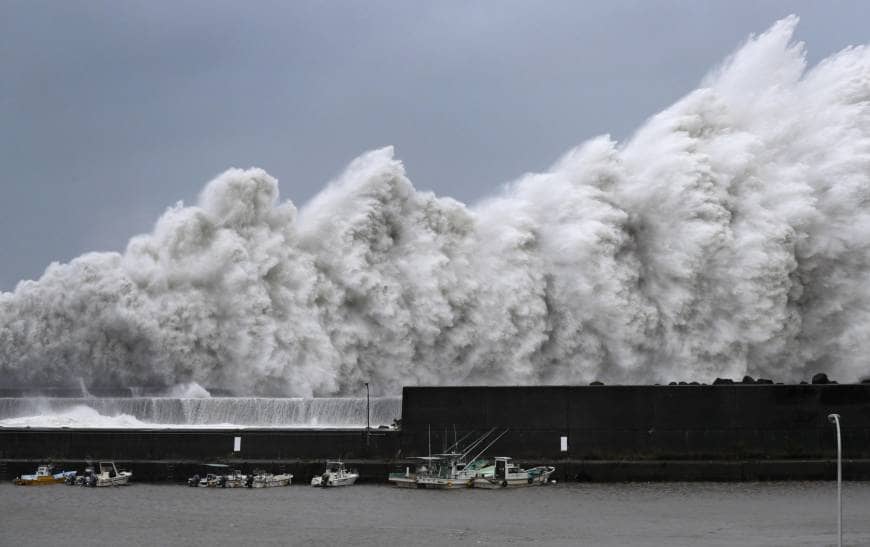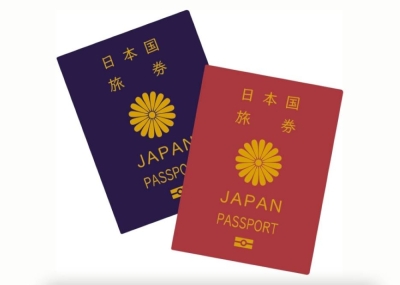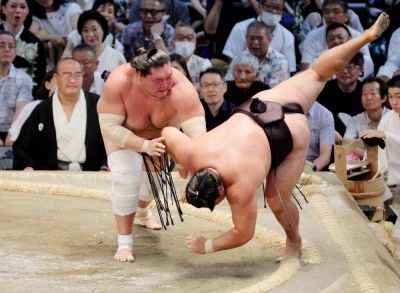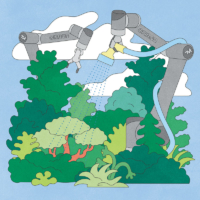Japan typhoon tips: What to do before, during and after
High waves are observed at a fishing port in Aki, Kochi Prefecture, in September 2018 as Typhoon Jebi approaches western Japan. | KYODO
In Japan, typhoons are a kind of tropical storm, synonymous with hurricanes, that approach and sometimes hit the country between August and October each year, often bringing torrential rain and strong winds. Around 30 tropical storms pass through Japan each year. Many are minor, but don’t underestimate the damage and threat a powerful storm can bring, including widespread flooding, wind damage and landslides. So, how can you stay safe when a typhoon comes your way?
Before the typhoon
- Know the evacuation routes not only from your home but from your work, children’s schools and the places you visit frequently, and print out maps, since you can’t rely on Google in a disaster.
- Make sure your phones, portable chargers and other devices are fully charged.
- Bring in outdoor plants and other objects that could be blown away by heavy winds.
- Ensure that larger objects — bicycles, laundry poles, etc. — are secure.
- Close exterior shutters and, if you don’t have them, make sure to close your windows and avoid sleeping near glass ones.
- If you’re in the path of a typhoon, be sure to wear clothing to bed that you can immediately go outside in.
- Write down important phone numbers and store them in your emergency kit. In addition to contacts of family and friends, note emergency contacts and the number for your embassy.
- Prep a supply of water and nonperishable food. This can be used interchangeably with other “go-bags,” such as earthquake kits. But be sure to check expiration dates annually.
- Develop a safety mind-set. For example, fill your car’s gas tank when it gets half empty; and take note of evacuation signs when visiting new places — and, if necessary, learn weather-related vocabulary and their kanji.
During the storm
- If you are unable to evacuate your home and you are in a place that is vulnerable to flooding, make sure to stay on the second floor.
- Check tropical storm advisories from the Japan Meteorological Agency.
- Stay away from downed power lines. When exposed to water, electric facilities such as power switchboards and power lines could cause not only a power outage but also the hazard of electric shock.
Things to have on hand
- Flashlight (with fresh batteries)
- Non-perishable food
- Phone with charger
- Spare change of clothes
- Rain gear
- Cash; credit/bank cards
- ID card and/or passport















